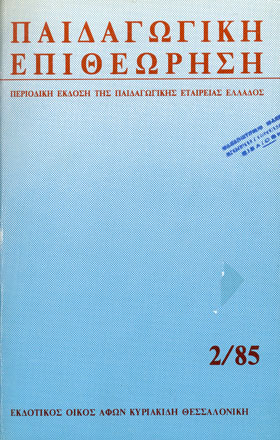Το παιχνίδι στα παιδιά των μεταναστών: κοινωνική προσέγγιση
Main Article Content
Περίληψη
Two groups of Greek migrant children 8-10 years old, living with or without their parents in Greece and Germany were compared to a control on: The most common play activities mentioned by their parents/caretakers on an interview based questionnaire. Results showed the migrant children living with a parental substitute in Greece did not differ from the control group with respect to the types of play. The most common play activities mentioned for the two groups were: a) Kinetic play involving physical abilities (football, running, hide and seek etc.) and b) Free constructive play involving constructions based on child's ideas. In contrast, migrant children living with their parents in Germany seemed to be much more occupied with constructive play in which all construction was based on ideas directly suggested by the materials used. Stereotyped play related to child's sex was apparent among children living in Greece rather than in Germany. Results are discussed in relation to child's social development and social adjustment within the given cultural context.
Article Details
Τεύχος
Ενότητα
Άρθρα
